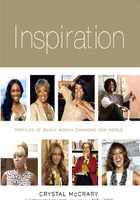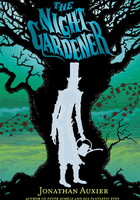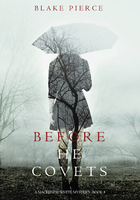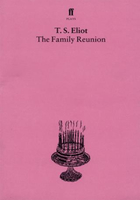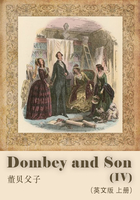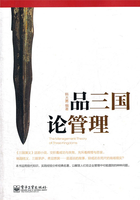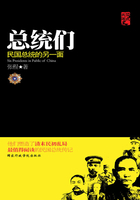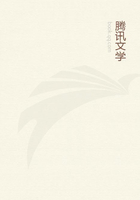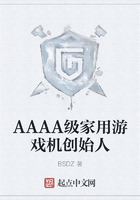"So why did he accept?" Todd Baker, managing editor of the Washington Star asked, sitting on the edge of Spencer Benson's desk.
"Harry is introducing him," Spencer Benson said.
"They've announced that?"
"Not yet." Spencer winked. "I have my sources."
Benson smiled his cat-who-ate-the-canary smile. He was sandy-haired, brown-eyed, freckled, and still boyish in his late thirties. His smile was lopsided, and when he grinned, his eyes squinted. People said he had an endearing air about him, useful to disarm interview subjects, which was his specialty. He was the Washington Star's top feature writer.
"Makes sense," Baker said. "Missouri is Harry's home state. The Midwest is in."
"And Churchill is out," Spencer reminded him.
"You think you can wheedle some idea of what he will talk about? He's in Miami with his wife."
"So I've heard. But I'm told he's not doing interviews."
"He loves interviews."
"I suppose he's being coy."
"Come on, Spence, you've got the inside track. You don't have to say what we're really after. Feature is your turf, not hard news. Be a coup for us."
"We're not dating anymore, Todd. Besides, Sarah is on the West Coast making a movie."
"So you are in touch?"
"We're still friends," Benson muttered, blushing.
A month of passionate intensity didn't make a lasting relationship. It was a fling. She was a delight, but her own person, not given to anything permanent-too rich for his blood. Drank too much. Wore him out in bed. And she had too many active lovers. Not his style. He was a one-woman-at-a-time man. Besides, he had obligations to his two children who lived in Bethesda with his ex-wife.
"As the Brits say: give it a go," Baker said with authority. "I'm looking for a news peg. Maybe you can fish it out of him. Why this little college in the middle of nowhere? Why now? What's the big deal? Fish around in Washington. You've got connections; use them."
His first call was to Donald Maclean, first secretary of the British embassy. Lord Halifax was the ambassador but dependent on Maclean to run the embassy. Sarah had introduced them at the height of their affair, and he invited them to a plushy dinner at the embassy. Maclean had called him after the dinner, and they had had lunch at the Cosmos Club, a male bastion for both the intellectual aristocracy and the powered meritocracy.
He was a charming, urbane, upper-class Englishman who cultivated journalists. Physically impressive, with his slim build, swept-back blond hair, six-foot-four height, always dressed elegantly in exquisitely tailored Saville Row pinstripes, he was straight out of central casting for the authentic version of the quintessential British diplomat. He knew everyone, was socially ubiquitous, and was rumored, despite a wife and children, to be a womanizer. There were also dark whispers about his being something of a switch-hitter sexually. But then, the Brits private school system was notorious for such propensities.
"It baffles me, Donald," Benson said, offering his boyish smile. "Why this little college in the boonies?"
"A favor to your President," Maclean said. "Favors, Benson, the system runs on them. Harry probably owed one of the trustees something from his Prendergast days. His buddy Vaughn was probably involved. Mustn't forget old Harry is a ward healer at heart. He obviously promised them a big fish. Winnie will flash his V and puff his stogie, and the great unwashed will go wild."
Maclean hesitated, then speared the olive from his martini, popped it in his mouth, and shrugged.
"What could he possibly say that he hasn't said? He's no longer the PM, out of favor, yesterday's dishwater."
"Power exists in his words, Donald. You can't just write him off."
"You're right, of course. You can never write off the old boy. He's done us a great favor, rallying the troops, a real cheerleader for the empire, the vaunted empire."
Maclean shook his head and snickered.
"I'm afraid the bloody old empire is going to shrink a bit in the next few years, Spence. Those Tory lions are not in vogue these days. The future is elsewhere."
He stopped abruptly as if he were choking off a desire to say more.
"Never ceases to amaze me how you Brits could turn that party out of office after they were instrumental in winning the war. Not exactly a grateful nation."
"You forget, Spence, acrimonious British politics was suspended during the war. The Brits were one, and Winnie was the conductor of our patriotic orchestra. 'Blood, sweat, and tears,' remember that?" He gave a good imitation of the former Prime Minister. "What can he possibly say that we haven't heard before? Hit on the Russians? He's done that before. We are in an era of good faith, Spence. We love our Russian friends now and have great residual feeling for their enormous sacrifice. Uncle Joe is still a cuddly old bear. Our former PM is running against the tide, old boy."
"Maybe so, but…."
Maclean was not to be stopped.
"The Russians can barely pull themselves together. The destruction of their country has been massive. They deserve our pity and our friendship. Whatever he says won't make a dent, except in the most rightist circles. Spencer, we are moving in the opposite direction. The Socialists are in charge in Britain now."
Benson dismissed his talk as butt kissing for the new government, bureaucratic ass kissing.
"The king is dead, long live the king."
"Still, why Fulton? I can understand Harry's motives, but why Churchill? Is he merely obliging a friend?"
"Oh, I doubt they're friends," Maclean said. He lowered his voice, "Truman has nothing in common with the old Tory. I'd say he and Churchill are oil and water. Imagine the grandson of the Duke of Marlborough and the son of Lord Randolph with this…."
Maclean left the sentence unfinished, then sipped his drink, and began again.
"FDR must be spinning in his grave for perpetrating this unintended consequence. For whatever political reasons that flogged him on, the poor man deliberately tapped a border-state nonentity. Beware of what you wish for, Spence."
Not wanting to turn off a source, Spencer held back any hint of resentment. He didn't like this charming but snobby Brit to badmouth his presidents-not that he didn't partially agree. But Truman's decision to drop the bomb showed extraordinary courage and did end the war.
Maclean had emptied his martini glass, and Benson sensed that he would order another.
"Not for me," he said quickly.
"Let's order then," Maclean said, adding, "I wouldn't give the speech that much credence, Spencer." He lowered his voice. "Let's face it, Benson. The man's an icon. Trust me, his fame will fade in time. But in terms of power politics, I'd say he's out of the loop."
Maclean's dismissal of Churchill struck him as ingenuous.
The lunch left him troubled. When he got back to the office, he put in a call to Sarah Churchill. Forgetting the time difference, he apparently roused her from sleep. He knew she would be testy and hungover.
"Why can't the world operate on one time zone?" she said, hoarsely.
"I'm so sorry, Sarah. Could you call me later at the paper?"
"No, no, Spence. Just give me a few minutes to pull myself together." She giggled. "I am alone, darling."
He waited through a long pause, but the tinkle of ice in her glass gave a clue to what was happening.
"So, how are things in the capital of our colonies, darling?"
"Hopping," he said, with some indifference. He wanted to avoid the small talk and get right to the point.
"I'd like to interview your father, Sarah. Soft stuff. A feature on what the great man is doing in his retirement."
"How endearing."
"It's business, baby. You're my source."
"You mean sauce or source?" she teased. "I did enjoy you as the former."
"You're deflecting, Sarah," he said, with mock sternness.
She sighed and paused. He could picture her taking another sip of Johnny Black, her father's choice as well.
"Both he and Mother are in Miami. I'll be visiting them in a few days. Got a week's reprieve from this dreary flick we're doing. I need family solace to compensate for a wretched script."
Spencer knew that despite outbursts of rebellion, Sarah sought her parent's comfort in times of stress.
"Really, Sarah. Can you set it up for me?"
"Using me, are you, Spencer?" she giggled. Obviously, the alcohol was improving her mood. "But then you can use me anytime you feel the urge."
"Too rich for my blood, Sarah," he muttered, but with a deliberate lilt.
He was indeed using her and had no intention of getting back on her treadmill of perpetual need. But then he did understand that she had a heavy burden to bear, considering her father's celebrity. She was without illusions about being a stick figure in her father's spotlight. The role had considerably stunted her sense of self-worth.
"My understanding is that Father does not want to give any interviews. Not before his speech in…." She groped for the name.
"Fulton, Missouri."
"Sounds right. Oh yes, Westminster College. I thought it would be nice for him to go, poor dear. He's rather flummoxed with his move from Number 10, although he's getting over it. For what it's worth, I encouraged him to go. The President himself is making the introduction."
He was surprised at her knowledge. Perhaps the relationship with her father was closer than he realized.
"What will he talk about?"
He hoped his inquiry sounded casual, only mildly interested.
"As always, darling. The big picture."
"State of the world?"
"What else? Obviously, he does not wish to leave the world stage. He has a great sense of the dramatic… as if you hadn't heard."
"Runs in the family, Sarah."
"His stage is a lot bigger than mine, darling."
There it was, he thought, a tiny chink in the family armor, a brief glimpse of resentment, perhaps jealousy.
"Please try, Sarah. Put a feather in my cap."
"Only if you tickle me with it, darling," she said, ending the conversation with polite amenities and no promises of assistance.
He had almost given up hope, when Sarah called him a few days later from Miami.
"Come on down and toast your buns, darling."
"You've done it?" he asked expectantly.
"I was a bit oblique. Father is having his portrait painted. He's sort of trapped. Loves the idea of the result but not the process. I told him I had this very intelligent newspaper friend from Washington. I think the Washington bit got him interested."
The paper booked him a stateroom on the Miami overnight train, and he spent the time pouring over material he had managed to cull through the Star's extensive files on Churchill and some books he had cadged from his contacts at the Library of Congress. He figured that knowledge of Churchill's early days might be ingratiating as an opening gambit. The man's career was amazing. More than once, he had risen from the ashes like the proverbial phoenix.
Churchill had been attacked unmercifully in his early days in politics. As First Lord of the Admiralty he was excoriated for the Gallipoli disaster, then flayed again as Chancellor of the Exchequer during the Depression. Economists blamed his gold policy for the debacle. Then came attacks by Socialists who railed against his colonialist objections to ending British Raj in India.
Adding insult to injury he had been bludgeoned for his furious objections to Chamberlain's pro-peace policies, which he had characterized as appeasement. The man had been a punching bag for most of his political career. The Russians particularly amused him by battering him for his damning of the Molotov-Ribbentrop Pact that had divided Poland. And, of course, Mr. Goebbels was predictably harsh, portraying him as a satanic monster.
Some of the information he learned about Churchill was extraordinary: He had missed death numerous times. During World War I, he had left a bunker five minutes before it was blown up. He was nearly killed during the Boer War, captured, imprisoned, and then escaped. Again, he was nearly killed in an automobile in Manhattan on a lecture tour in the States.
Little-known, odd facts tickled Benson: In 1900, Mark Twain introduced Churchill at the Waldorf Astoria in New York while on a lecture tour describing his exploits in Africa. Churchill was a correspondent in Cuba during the time Theodore Roosevelt led his Rough Riders up San Juan Hill. He was a close friend and admirer of Lawrence of Arabia. His research on Churchill was so extensive; Benson barely slept on the journey.
Sarah picked him up at the station in a pre-war Lincoln Continental convertible. Wearing white shorts and a green jersey to set off her green eyes, she looked radiant. He kissed her on both cheeks in the Continental manner.
"You look like a million, Sarah," Benson said, meaning it.
The sun was bright, the air clear. Sarah's hair caught the breeze of the speeding car as it moved through the Miami streets. She asked about the trip, his children, the usual amenities, and he probed in kind.
"Father is sitting this morning for Douglas Chandor, the portrait painter," she said. "He was a bit crotchety earlier, but a touch of brandy settled him down. Douglas has him all decked out in a winter suit, not exactly the proper attire for this climate."
"Have you explained why I'm here?" he asked, hopefully.
"I told him you're my journalist friend from Washington, and you're researching a future article. I wouldn't be too specific about your intentions."
"Will he be amenable? I mean, he's sitting for a portrait, and Mr. Chandor might object."
"Not at all, darling, Douglas doesn't mind. And Father will welcome the interruption. As I told you, he hates the process, especially his costume. Father is into legacy these days."
Sarah introduced Benson to Mrs. Churchill, whom they met just as they entered the house. Her silver hair and aristocratic poise was a well-known photographic image, mostly taken while welcoming her husband home from his many journeys. She was shorter than he imagined. Mrs. Churchill smiled, nodded politely, and reached out her hand.
"So good to meet you, Mr. Benson. Sarah has told me a great deal about you." She looked beyond them to a waiting limousine. "So sorry, but I must be off. The ladies of Miami have kept me busy. Today we are touring an art museum. They have been so generous."
"A great deal about me?" Benson whispered to Sarah, when Mrs. Churchill had moved out of earshot.
"Mother is an old political pro. She understands the protocol of ingratiation. I merely told her you are a friend, only that. We Brits are expert apple polishers, polite to a fault. It masks our disdain." She laughed, tucked an arm under his, and moved him through the house.
They found Churchill sitting in an enclosed glassed-in terrace. Just outside was a large swimming pool in an area surrounded by a high wall fronted by tall, exotic plants.
The artist had placed him in a large chair, where he sat somewhat stiffly, using a magnifying glass to read the London Times. The magnification apparently was necessary so that Churchill would not break the pose. He was dressed to the nines in a navy blue, pinstriped, woolen suit, a gold watch chain slid through a middle button of his vest. He wore a maroon polka-dot bow tie on a white shirt.
A fan hummed behind him. His baby pink complexion belied his seventy-one years. In his right hand, he held a lit cigar.
"Father, this is Mr. Benson."
Churchill looked up from his reading. The artist, a short squat man with a tiny moustache, concentrated on his work behind a large easel.
"It's all right, Mr. Churchill," the artist said. "You can stand down."
Churchill shrugged and pulled a smile of relief, showing a wet lower lip, in which he quickly slipped his cigar for a brief puff.
"This man is a tyrant. Look at this costume. I am a chained prisoner in a tropical cell."
"It will look wonderful in the portrait, Father. Or would you rather be painted in the altogether?"
"With an arrow and quiver, I could pass as Cupid."
He took a deep puff on his cigar then used it as a pointer to a chair. Benson settled in and took out his dictation-style notebook.
"I'll leave you two together."
Sarah kissed her father's cheek and patted Benson on the knee.
"I was one, you know," Churchill said, when she had sauntered off.
"One what, sir?"
"Foreign correspondent. Pretty good one, I must say."
"I'm well aware of that, sir. I spent the night reading very extensive material on your career."
"How boring."
Churchill winked and smiled. He took another deep puff and exhaled a cloud of smoke. Benson felt his cerulean blue eyes assessing him.
"I can tell you this: It is far better making the news than merely taking it down," he said.
"Unfortunately," Benson responded. "I have never had the opportunity to do the former."
"The Washington Star is it? Sarah said something about you wanting to do a story about how this old, has-been hulk is faring in his so-called tranquil retirement."
"That would hardly be my theme, sir."
"Tranquility!" Churchill boomed suddenly, as if it were an expression of contempt. "There is nothing more tranquil than the grave. It is not my intention to repair there in the near future." He paused and then muttered, "Although there are some who would like to hasten such a journey."
Benson was taken aback by the sudden outburst and wasn't sure how to respond. Churchill suddenly relaxed and took another puff on his cigar, blowing the smoke upward.
"I hadn't planned any meetings with the fourth estate for the time being. But my daughter is quite persuasive. I thought perhaps, in a fair exchange, you might give me some insight into what's happening in Washington."
"Be my pleasure, Mr. Churchill."
"How is our new president faring these days?" Churchill asked. "We did get a chance to know each other in Potsdam. Perhaps if I hadn't attended and stuck to my political last, I might still be living at Number 10."
A brief shadow of regret seemed to pass over his eyes, dulling them for a moment. He paused, recovering, and then asked cheerfully, "Do you think Mr. Truman has a chance to be elected on his own?"
Benson felt flattered by the question and determined to give the answer his best shot.
"Too early to tell, sir," Benson said. "He's got two years to solidify himself. At the moment, I'd put him in the political danger zone. There are stirrings on his left and right flank. He may find himself in a real fight. I think it will be a Republican win, although I'm only speculating. The bomb thing gave him heft, but most pundits think his days are numbered in the White House."
"Hazardous business, politics."
He shrugged and looked upward as if consulting a muse.
"Politics is almost as exciting as war and quite as dangerous. In war, you can only be killed once but in politics many times." He shook his head and smiled. "I do admire the man. Took a lot of gumption to make that decision to drop the bomb. Franklin might have done it, although one can't be certain, but it was Truman after all who gave the order. The destruction it wrought was beyond belief. Truman was told about its frightening power, and it certainly did get the attention of the Japanese warlords. To his everlasting credit, that decision finished the war in the East. Indeed, many a parent or wife or sweetheart or child of an Allied soldier owe the man a debt of gratitude."
"To you as well, sir."
"You think so, Benson? In their wisdom, the British public thought otherwise."
"History will be a better judge, sir."
"Can one depend on the judgment of history? I have found that a contemporary outlook far different than our own always determines history. History might judge Mr. Truman as a brutal murderer of thousands of innocents in a horrific G?tterd?mmerung. And I? Already there are rumblings that I am responsible for the destruction of Dresden. As if what their bombers did to Coventry and London was playacting. Without the passion of our desperate struggle, how would it be possible for future historians to summon up the raw emotion of our time? They will look at our struggle through the wrong end of the telescope. Perhaps even Hitler will be cleansed of his legacy of evil. Indeed, people might say he didn't finish the job of the so-called final solution."
"You're being very pessimistic, sir."
"Not really. Even revisions get revised."
Benson knew he had to steer the conversation beyond the historical. His editor had given him a specific assignment. With time fleeting, he plunged ahead.
"Tell me about what you'll be doing and saying at Westminster College in March," Benson said, hoping he was being casual and only mildly interested.
His mind had focused on a quote he had read on the train, attributed to Edward R. Murrow, saying that Churchill had "marshaled the power of words and sent them into battle."
Churchill nodded and shrugged.
"Oh yes, they're giving me a doctorate."
Churchill flicked an ash from his cigar into a nearby ashtray. His lower lip jutted downward into a scowl.
"Defeat, you see, allows one to reap the benefits of death prematurely-portraits, dedications, honors-it's like watching one's own funeral."
He grinned suddenly, his eyes sparkling.
"Getting yet another honorary doctorate here in Miami. Clemmie says I'm addicted to the irony, since I was such an awful student. No one who has ever passed so few examinations has received so many honorary degrees. Douglas tells me it's because I like the costumes."
He bent closer to Benson in an attitude of confidentiality.
"I'm only enduring this torture because Chandor has promised to give me some painting tips. Isn't that right, Douglas?"
"I must say, Mr. Churchill. Your paintings are wonderful."
"Who can argue with such praise? The truth is my figures are awful. That's why I always paint landscapes."
"And trees don't talk back or chatter away," Chandor said.
"What will be your theme?" Benson asked, trying to make the idea seem a casual thought.
"My theme?"
"In Fulton. Your speech."
Churchill smiled. His cigar had gone out and he relit it, savoring the smoke.
"Depends," he said, cryptically.
"Depends on what?" Benson pressed.
"On the moment," Churchill said, with an air of dismissal.
Benson was reminded of his deflective remark to Sarah. Churchill was quite obviously deflecting. But Benson persisted.
"I'm sure everyone will be most interested in what you have to say, Mr. Churchill."
"Nonsense, Benson. I speak to the wind these days."
"When Churchill speaks," Benson said, determined to restore himself in better graces, "the world listens." Ironically, his remarks offered another opening: "Your speech in Fulton, sir, could provide an opportunity."
"I see my daughter has gotten to you, Benson. She sees it as a seminal event, what with Mr. Truman present to introduce me."
"I would say that you could make it a historic event if you so choose."
Churchill puffed deeply on his still-lit cigar and blew out a stream of smoke. He seemed suddenly distant, lost in thought.
"What is your assessment of the attitude toward the Russians in Washington, Mr. Benson?" he asked, after what might be called a pregnant pause.
The inquiry seemed of very distant interest to the matter at hand, but Benson went along.
"So far, so good," Benson said, cautiously. "There are, of course, those on the Right who are rabidly anti-Communist and won't trust the Russians on anything. And, of course, there are many on the Left who approve of our relationship with them. All in all, I'd say there is a wide centrist reservoir of goodwill that still exists toward the Russians."
Churchill grew pensive.
"Your General Patton wanted to go right in and fight them."
"Surely that wasn't your view, Mr. Churchill?"
A deliberate journalist's ploy, he offered it with trepidation. Churchill observed him, his eyes narrowing.
"Remember, Benson, I was in your profession once."
Churchill seemed to turn inward, and Benson did not press the point. He sensed that the old man had put up his guard.
"Put it this way, Benson. These are troubled times. We have won the war. The larger question is: Can we win the peace?"
"Who do you mean by we, sir?"
Churchill's eyes narrowed. His cigar had gone out, and he used the pause to relight it and puff deeply.
"Why belabor the obvious, Benson? We are Western civilization. We are those who stand for the great democratic values of freedom and the rule of law. Come, Benson, surely that doesn't need any further explanation."
His sudden testiness quickly subsided, and Benson tried again.
"Do you think the preservation of those values is in doubt, sir? Is this what you will speak about in Fulton?"
"That depends."
"On what?" Benson pressed.
"On Cassandra's mood on that day," Churchill chuckled, his brief burst of temper gone.
"And what will she be prophesying, sir?"
"Endless questions, Mr. Benson! The journalist's lot is questions, questions, questions."
"That's our job, Mr. Churchill. If we don't ask questions, we don't get at the truth."
"Ah, the truth. There is a conundrum. Make it up, lad. I did when I was in your profession."
"Mr. Churchill is being playful this morning," Douglas Chandor said, peeking from behind his big canvas.
"I was just trying to get your perspective, sir," Benson said, defensively.
It was obvious to him now that he was not going to get the story he came for. Churchill, as if reading his mind, offered more meat for deflection.
"So what does one do in one's dotage?" Churchill said, deliberately answering an unasked question about how he spent his time. "I paint. I write. I dictate, by the way. I continue to be a member of Parliament and the leader of His Majesty's opposition-although, at the moment, we Tories are in shambles. I enjoy good spirits and good food, and the love and devotion of a fine family."
He lifted the London Times.
"I keep up with events. I receive honorary degrees. My friend Chandor here is immortalizing me. And I will be crossing America with Mr. Truman, although I will not be joining him on his daily constitutional. Does he continue that practice?"
"Without fail, rain or shine."
"Do me the world of good, I suppose, but I get my exercise being a pallbearer for my friends who swear by calisthenics and exercise," Churchill said, patting his ample girth. "Unfortunately, the man rises at dawn. I work on a rather different clock."
He smiled and directed his remarks to Chandor.
"What say you, Douglas?"
He turned again to Benson. "I know what he's doing. He's making me look like a bulldog."
"I'm trying my best, Mr. Churchill," Chandor said, dabbing his brush against the canvas, stepping back to assess his work.
"I am more a lion than a bulldog, Chandor. Frankly, I prefer the lion."
"Then roar away, sir," Chandor chuckled, obviously enjoying the banter. "Your recess is over."
"Well, then back to the grindstone," Churchill said, resuming his pose and picking up the Times and the magnifying glass.
"Nice meeting you, Mr. Benson. I hope you have a pleasant stay in this tropical paradise." Benson rose. He knew when he was defeated.
"I hope I have given you enough meat to put on the bones of your story."
"I was hoping…" Benson began.
"Springs eternal, Mr. Benson. Springs eternal. I look forward to meeting you again."
Benson nodded. He was dismissed.
Churchill took another deep puff on his cigar and looked toward the painter.
"Am I in the correct pose, Chandor?" Churchill asked.
"It will do," Chandor said.
Benson backed away. The interview was over.
***
"I hope you got what you needed," Sarah said.
"Very informative."
He hadn't told her the true objective of his mission. Nor did he wish to show any disappointment. She had gone out of the way to arrange the interview, and he wanted to show a pose of gratitude and to hide his disappointment at the results.
They were sitting in the corner of a dark cocktail lounge at a small beach hotel that Sarah had booked for him. They were on the second bottle of vintage champagne, an expense-account perk, most of which was imbibed by Sarah. Noting her condition, Benson suggested dinner.
"In a bit, darling," Sarah said, her tongue slightly heavy.
He knew the signs. In her cups, she would eschew food, and he could look forward to a late hamburger in his room. Although they were once lovers, he had no intention of spending the night with her.
He hoped she wouldn't get sloppy drunk, although she was quickly heading in that direction. Soon, he knew, she would get maudlin. He hated her in that mood.
"I could never marry a man like you, Spence. Never."
"That again?" he sighed.
"Too focused. Too absorbed in your work. You never smell the roses."
"Like your father?"
"Not at all. For Father, his work is the roses. He lives in a rose garden."
"Tell you the truth, Sarah, I wish I had his range of interests."
"My father is a genius," Sarah said. "He has one problem."
Benson's journalistic instinct suddenly went on full alert.
"And what is that?"
"Too bloody formidable. We all love him dearly, but being his offspring is a trial. It has bent us all."
She grew distant for a moment, then reached for her drink, and upended it.
"No more, Sarah," Benson urged.
"You're right," she giggled. "Time for scotch."
She signaled to the bartender to bring her a scotch highball. Benson resigned himself to a long night.
"Did he activate his Cassandra mode?" Sarah asked.
"As a matter of fact," Benson shrugged.
"He'll be right again in Missouri," Sarah said.
Again Benson's journalistic instincts rose.
"Right about what?"
"Blasted Stalin. Blasted Russians. I think it's the root of his depression, what he calls his 'black dog.' Thinks they outsmarted us. Calls them liars, ruthless buggers. Not to be trusted. He was all for going in and taking Berlin before them and moving into Yugoslavia and Czechoslovakia when we had the chance. Thinks Eisenhower and Roosevelt were patsies, although he adored them both. Mostly, he thinks he was bamboozled."
She swilled down the scotch. He was baffled by her knowledge of these recent historical events.
"Thinks Attlee is a fool, soft on the Russians. Worse, he thinks Truman might, for some harebrained political tradeoff, give Stalin the secrets of the bomb. Imagine that! Says Roosevelt promised it and could have done it. He's hoping to foreclose on that possibility. You can't imagine how Father thinks about these people-Stalin and his gang. I have the sense that he really wants to deliver a smashing psychological blow, warn the world about the Russian menace."
"But they did suffer terribly, and the Red Army did bear the brunt of the burden."
"He acknowledges that, of course, but insists that we might have lost the peace. For their failure at the conference table, the Western democracies could pay the piper… unless they wake up and face this new menace."
"Pay the piper?"
"Lose the world to them, the Red menace."
Sarah lifted her hand to signal for another scotch. But Benson did not want to break her thought pattern and motioned to the bartender to slow down the order. Although she had imbibed a great deal of alcohol, her speech was remarkably lucid.
"I think he now sees Fulton as a launching pad for his views. I'm only speculating, of course. At this stage, no one knows what he is going to say. Perhaps not even he does. But I feel certain-call it gut instinct-that he wants it to be a real bell ringer. My father believes that words are more lethal than bombs. He wants to use words to blast open the truth about the Russians."
"Which is?"
"I just told you, Spence. He believes they want to take over the world."
"Tomorrow the world… just like Hitler."
She nodded.
"To my father, the war is not really over."
Benson looked at his watch. It was past midnight. The train was to leave the Miami station at eight in the morning.
"Let me get you home, Sarah," he said, gently.
She nodded and sighed. He felt deep compassion for her, sensing her general unhappiness. He helped her to her feet, paid the check, and with her leaning heavily on him, led her to her car.
As he drove, she put her head on his shoulder.
"It's really hard for anything to grow in the shade of a big tree," she whispered.
He helped her up the stairs of the villa and used her key to open the door.
"Did I reveal too much?" she asked.
"Not too much," he replied.
"I hope you'll respect our friendship, Spence."
As a journalist, he knew what that meant.
"Of course."
She smiled, kissed him on both cheeks, and passed into the house.

